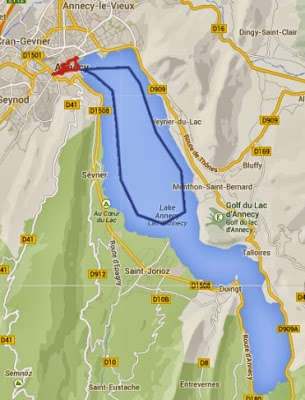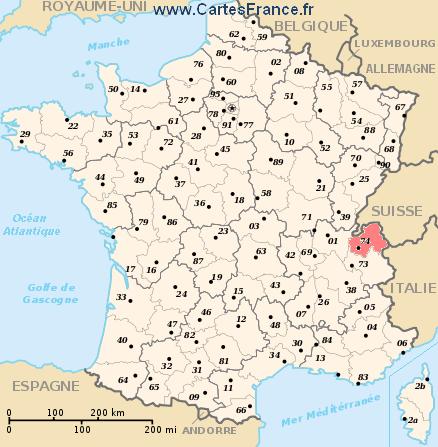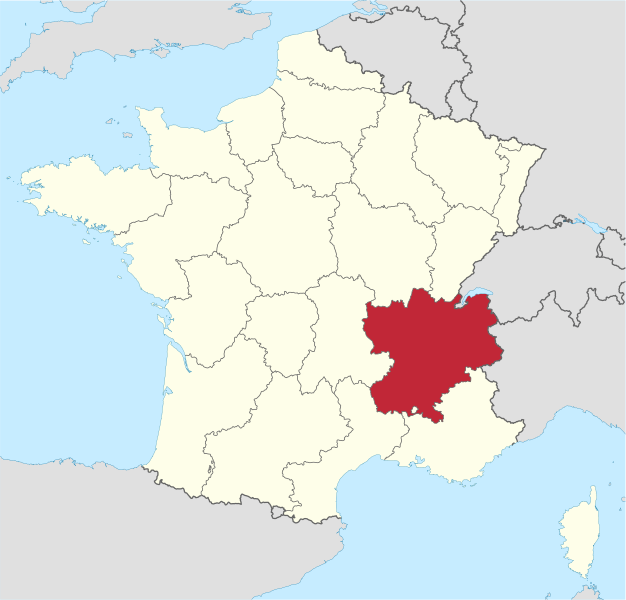It can seem quite scary moving so far from home. When you first go to University it doesn't seem all that bad because you're in the same country, but moving abroad is slightly different. For me it's a bit of an unusual situation, because when I finished my A-Levels I went off to France for my gap year, so moving to Uni was no big deal. Moving to France this time seems more exciting than scary. Nevertheless, there's a lot more this time that I have to organise for myself. Last time I went to live with a family as an au-pair, so a lot of stuff was already arranged for me. I've tried to make myself a check-list of things I need to do before I leave and I hope this may help others trying to cope with pre-departure organisation. Some of this stuff is very me-specific so might not apply to anyone else, but I hope it helps!
Accommodation:
Accommodation can be tricky to find when you're not in the place you're going to be living. For France there are quite a few sites you can use to try and find places to rent/share. I've mostly been using www.appartager.com and www.colocation.fr which both try to find house shares for your individual needs. There's also www.seloger.com which just suggests places to rent, i.e. I had a quick nosey for studio flats. I'm finding it really difficult to find somewhere to live that I can afford, and even though there is somewhere very nice that I'd love to live (I'm waiting to hear back from the owner) you should never put down a deposit on a house you haven't seen. Hostels tend to be the best idea for the first few days/weeks/months until you find somewhere. In France most hostels require you to have a Hostelling International Membership, you can get this by joining the Youth Hostelling Association for £5 for a year (www.yha.org.uk/membership). I've booked myself into a hostel in Reims (just for a night so I can stop on the drive down for a break) and for 4 nights in Annecy. If necessary you can always book yourself in for more nights when you get there. Hostels can be quite cheap if you book yourself into a dorm room, and I've heard it's a pretty good way to make friends too!
Tickets:
As with any kind of travel tickets, booking early will save you money! I'm driving to Dover, getting the ferry and then driving to Annecy. The ferry has only cost me £39 for me and my car because I booked over a month in advance. When I get to France I have to do a 2 days introductory course in Grenoble, so I used www.raileurope.co.uk to book my train tickets to Grenoble and back (which cost me roughly £30). As I'm working with the British Council I've been told the term dates for the schools, so I've also booked my train and plane ticket home for Christmas! I haven't decided which date I'm going back to France yet so that one can wait for a little while.
Currency:
I'd recommend looking at different currency exchange websites to shop around for the best rate. As with buying tickets, you should start looking early. As exchange rates are constantly changing, you can look to see whether the currency you need to buy is falling or rising, and hopefully buy your currency at a point where it'll cost you less! I've bought myself a Travelex PrePaid Currency Card, which is basically a MasterCard debit card loaded with euros that can be used anywhere the MasterCard logo is displayed, I've also got myself some cash in case I come across anywhere they don't accept it (I've been warned toll-roads in France can be a bit funny with Travelex cards sometimes!).
Car:
So, because I'm taking my car there's a lot of stuff to remember to get done. I've already bought breathalysers (legal requirement in France - I'd recommend looking through the AA's website for more country-specific info if you're planning on taking a car), hi-viz vests, a warning triangle, a medical kit, a fire-extinguisher, a head-lamp diverter set, a GB sticker, a sat-nav and a map of France. I still need to get a headlamp changer set, a frost cover and snow chains. I also still need to get a complete new set of tyres because mine are nearly bald... I'm also thinking about taking a few driving lessons in France just to make sure I'm aware of all the different rules and such; if you're driving to your year abroad location I'd suggest looking into it as well! It could save you from a nasty accident!
Documents:
First off, passport. Mine is valid until 2020 so I'm good for a while, but it is sometimes compulosry to have at least 6 months of validity after return to the UK. If you do need to apply for a passport, don't leave it til the last minute or it will cost you to have the process speeded up! Secondly, EHIC. It's easy to apply for one and it comes in the post. I haven't had one since they were called E111! Thirdly, travel insurance. I've gone with Endsleigh because they do a specific student-priced year abroad cover. I've gone for comprehensive cover with added winter sports cover (I'm going to be in the Alps so I hope I'll go skiing!), plus specified valuables cover which brought it to around £360. Although it is a lot, I'm trying to think about it as just £1 a day for peace of mind. As with anything like this, read the T&Cs even if they're lengthy and boring, there might be something important in there that you don't want to miss out! It's also a good idea to make a copy of all important documents and keep one copy for yourself, another for your parents, and email another set to your email account in case you need to print off new ones. This is especially important in France where it can be very difficult to get anything done without the correct paperwork.
Destination:
Do your research on your destination before you go. Find places in town you can visit; research points of interest within travelling distance from your location. If you do your research beforehand you can make the most of the arrival excitement and get to know the town.
Bank Account:
From what I am aware, in France it is impossible to open a bank account unless you do it in person. I remember when I opened mine last time I was in France we had a meeting with someone who took copies of all my documents and then I had to sign a few things before I could officially open an account. This is why I've gone for the Currency Card option because until I have an account, I will need to get cash out somehow. On the home-country side of things, find out whether your bank have any kind of limits on your account and what their fee is for use abroad. While it's best to take the local-currency with you, you never know when you might need to use your home-account in an emergency. You should also let your bank know that you're going abroad to stop them blocking it if they see some foreign transactions!
Mobile Phone:
Most people have a mobile these days, and most of the time the tariff we're on does not cover international use. This can make it expensive trying to text or call home. As soon as possible after arriving at your year abroad destination, I'd recommend visiting a phone shop and looking for a sim card for that country. If you really need to be able to text/call home on a phone (remember, there's always Skype/WhatsApp) then I'd suggest looking for a tariff that covers international calls; if not, just get one with enough Gb of data to handle an app like WhatsApp and enough texts/calling time to contact any friends you make in-country.
Vaccinations/Medication:
While most of Europe doesn't require you to have any particular vaccinations that are different from Great Britain, it's always best to check with a GP. Also, if you have any prescription medications it's best to have a copy of that prescription with you (in case you lose it, or if they require proof at customs).
Culture Shock:
Familiarise yourself with the culture of your year abroad destination. There is such a thing as culture shock, but you can lessen the impact if you educate yourself a bit before you go. The French can be especially strange about some things (like shops not opening on a Monday and closing for lunch breaks!).
Other:
Make sure you have some socket adaptors for the country your going to. UK plugs don't fit in French plugs but you can quite easily buy adaptors so you can still use all your gadgets!
If, like me, you're driving or will be stopping overnight somewhere and have to leave some of your stuff in a place other than your hotel room, then I suggest packing all the valuables into one suitcase. Take that suitcase with you and do not leave it alone. Anything that you can afford to be stolen (such as pots and pans, bedding) can be left (in my case) in the car with a black blanket covering everything., etc.
Plus the obvious things like clothes and toiletries, plus if you have them/have room for them, pots and pans, bedding and books.
.JPG)
.JPG)
.JPG)
.JPG)






.JPG)
.JPG)
.JPG)
.JPG)
.JPG)

.JPG)
.JPG)
.JPG)
.JPG)
.JPG)
.JPG)
.JPG)

.JPG)





















